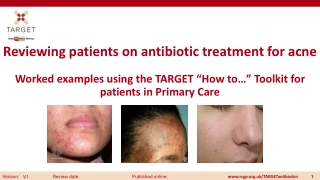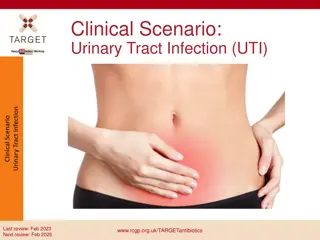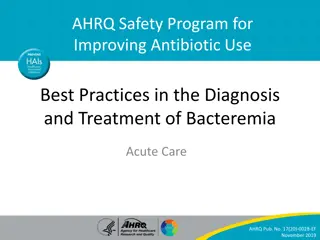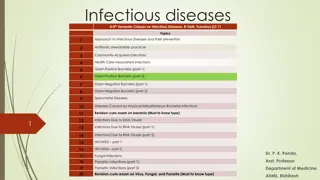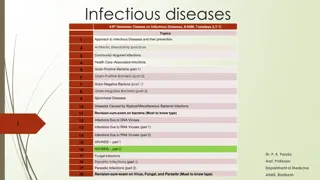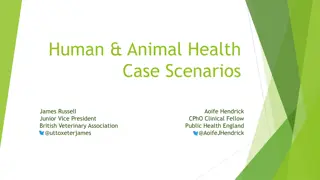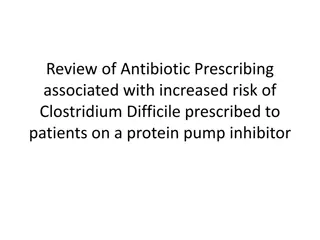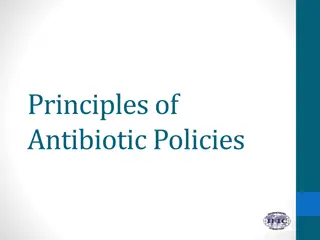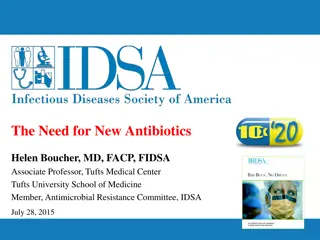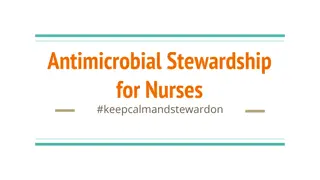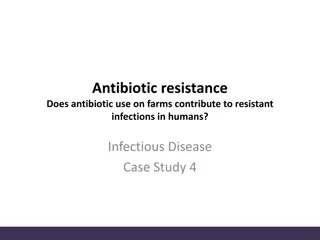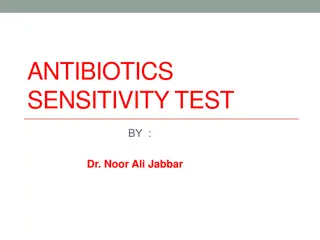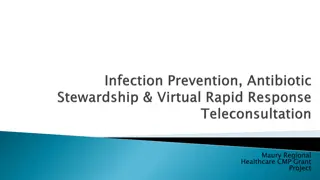Best Practices for Preventing Infections and Antibiotic Stewardship
Preventing infections involves measures such as wearing masks, practicing hand hygiene, cleaning surfaces, and staying home when ill. Multi-resistant organisms (MRO) like MRSA and Klebsiella pose a threat, particularly in healthcare settings. Proper hand hygiene, including using alcohol-based hand scrub, is essential, along with antibiotic stewardship to combat bacterial resistance. Adhering to guidelines and having a Drug Usage Committee can help ensure antibiotics are used appropriately.
Download Presentation

Please find below an Image/Link to download the presentation.
The content on the website is provided AS IS for your information and personal use only. It may not be sold, licensed, or shared on other websites without obtaining consent from the author. Download presentation by click this link. If you encounter any issues during the download, it is possible that the publisher has removed the file from their server.
E N D
Presentation Transcript
Preventing spread of respiratory viruses and nosocomial pathogens Influenza, COVID, RSV, many other viruses Masks and hand hygiene Cleaning of surfaces with dilute bleach Not coming to work when unwell and symptomatic
MRO = multi-resistant organisms Same as MDR (multi-drug resistance) Gram negative: Klebsiella, Enterobacter, Acinetobacter, Pseudomonas Gram positive: Staph aureus (MRSA), Enterococcus Colonise: Equipment: trolleys, surgical equipment, oxygen equipment, bedside tables, beds Patients: IV cannula, urinary catheters, gastrointestinal tract
5 moments of hand hygiene 1. before touching a patient 2. before any procedures 3. after body fluid exposure / risk 4. after touching a patient 5. after touching the patient surroundings
Alcohol-based hand scrub is best The WHO-recommended formulations contain either 75% isopropanol, or 80% ethanol Soap and water OK if you don t have alcohol- based hand scrub Standard - at least one hand-wash basin and running water and soap for every 10 beds
Antibiotic stewardship Bacteria develop resistance because of exposure to antibiotics Only give antibiotics for bacterial infections Not for URTI, watery gastroenteritis Adhere to Standard Treatment Guidelines Have a good reason for going outside these guidelines Drug Usage Committee a committee in the hospital which regulates the use of expensive or high-powered antibiotics, and no one can prescribe without approval Ceftriaxone 1998 for meningitis


